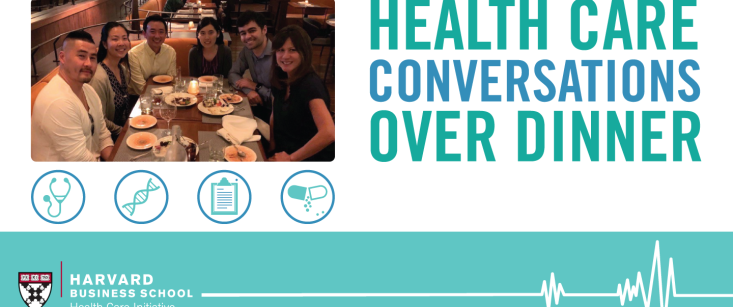One of the priorities of the HBS Health Care Initiative is to connect students with alumni who are working in health care. We invited a few students who are completing their summer internships and local alumni to discuss health care opportunities, challenges, and career paths over dinner. For this gathering in Southern California, I joined Charles Huang (MBA 2009), who is the regional director of the HBS Health Care Alumni Association along with Stephen Chen (MBA 2011), Antonio Henriques (MBA 2017), Lynn Wang (MBA 2017), and Katherine Shen (MBA 2020).
As we sat down for dinner, we discussed a recent Los Angeles Times article about California not having enough doctors and the state recruiting them by paying off medical school debt if they pledge at least 30% of their caseloads to Medi-Cal patients for five years. One in 3 residents in the state participate in Medi-Cal. California will spend $340 million paying off doctors’ debts using Proposition 56 tobacco tax revenue. Tobacco tax revenue is hefty. In July alone, the state offered its first round of awards and 247 physicians received $58.6 million in debt relief!
Throughout dinner, a variety of topics were discussed, including telehealth, the FDA, advancements in technology, the Blavatnik Fellowship, family businesses, and big pharma’s digital initiatives. Below is a few nuggets of information that came out of the evening:
California Health Care: Los Angeles has become a
leader the digital health space and has even been referred to “Silicon Beach”
over the past few years. Health care is California’s largest industry sector
and health care employment in California is forecasted to grow faster than
nearly all other industry sectors. San Diego has a strong presence in the life
sciences and recently was recognized as the third largest life science market
after Boston and San Francisco. There are many health care career opportunities
for HBS students who want to settle in Southern California.
Value-Based Health Care: HBS students interested in health care need to understand the discussion about moving away from fee-for-service to outcome-based reimbursement and how this proposed shift will impact all players in the continuum of care. In order for this to be truly realized, collaboration is key. This include providers along the continuum of care (diagnostics through post-surgical rehab), payors, pharmacies, IT technologies, and policy regulators.
Payor Fragmentation: From a clinical care perspective, it’s hard to train staff on the many nuances of insurance coding, documentation, across the payor landscape. Each payor/provider agreement is unique and it’s extremely confusing for billers, doctors, and patients alike. There needs to be a solution to this problem. We’re already hearing varying ideas from the Democratic and Republican perspectives from the impact of Medicare-for-All versus a more consumer-driven model to minimize these challenges.
Telehealth: Remote care has entered the clinical care arena creating new opportunities and new areas for risk. For people living in rural areas or traffic-dense zip codes in In Los Angeles, the advent of telehealth is a major reprieve. Rural patients don’t need to travel long distances and urban dwellers aren’t fighting traffic to get back and forth to the doctor’s office. Many payors still need to catch up on covering telehealth services for their subscribers. Clinical operational systems need to be optimized to capture patient data properly and post-visit care instructions need to be delivered in a manner that ensures patient understanding and commitment.
Blavatnik Fellows in California: There are five Blavatnik Fellows with presence in California now! The program just welcomed its 6th cohort in June 2019. As of Novemberr 2019, 25 Fellows have completed the program, started 21 companies, and collectively raised more than $250M in funding.
Bottom line, if you’re interested in health care management career in Southern California, opportunities abound. For more information, you can reach out to The Career & Professional Development department, the HBS Health Care Alumni Association, The HBS Health Care Initiative, The HBS Health Care Club and the HBS Association of Southern California, and the alumni directory.







